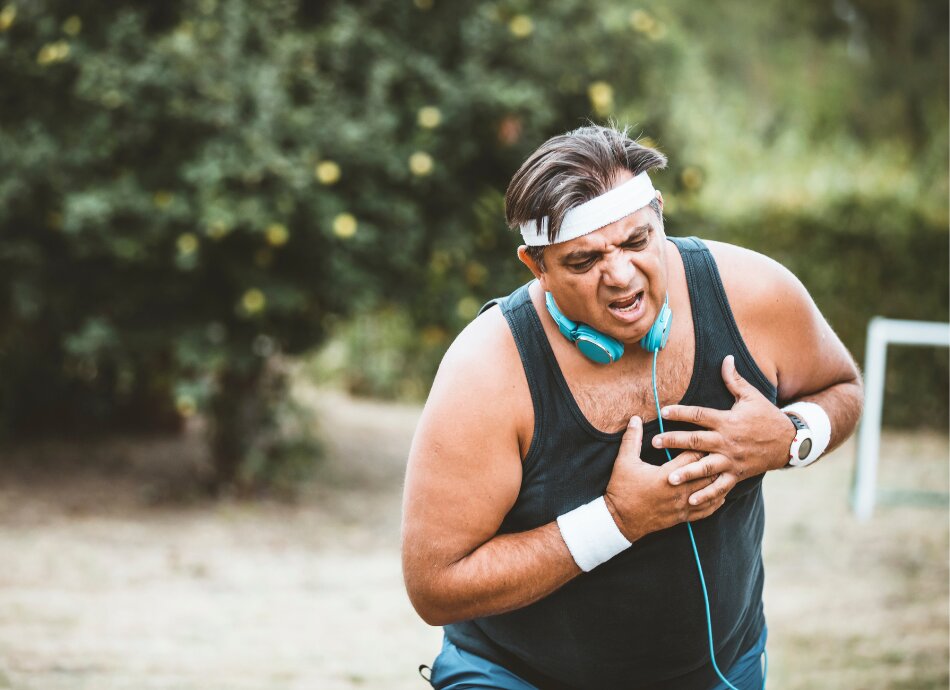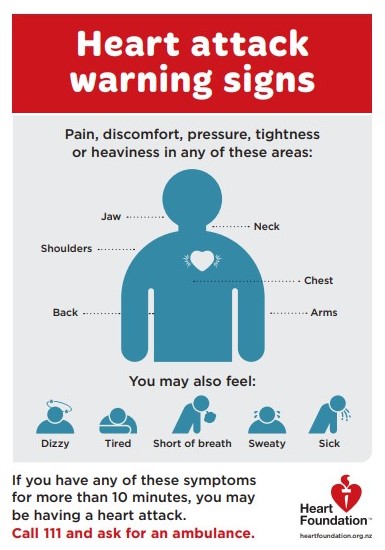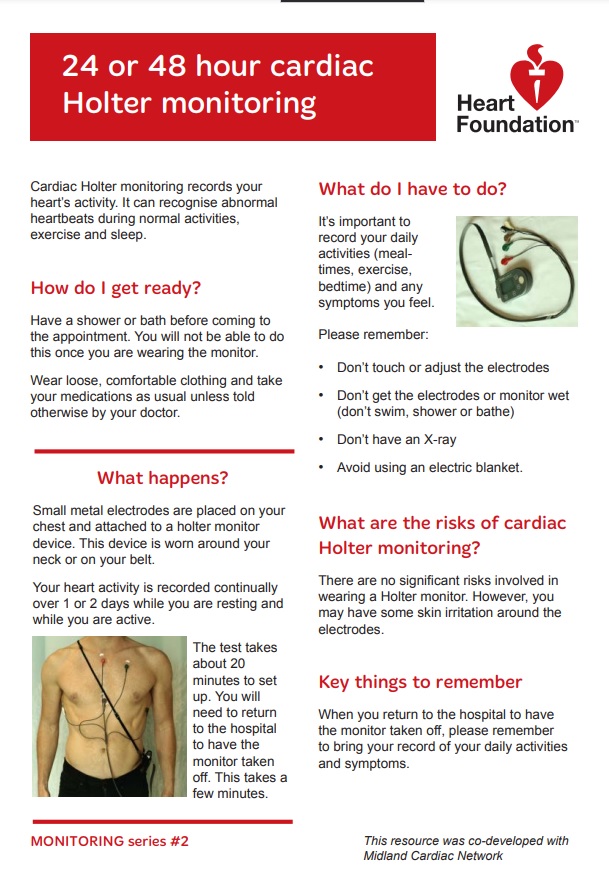Heart attack or cardiac arrest?
Key points about heart attack or cardiac arrest?
- Both heart attack and cardiac arrest are problems with the heart's functioning that require urgent medical attention.
- A heart attack is when blood flow to part of your heart is blocked.
- Symptoms can include chest pain or heaviness, trouble breathing, cold sweats and nausea/vomiting.
- Call 111 and give 1 aspirin (unless previously advised not to take aspirin).
- Cardiac arrest is when your heart stops beating, you become unconscious and stop breathing.
- Act fast: call 111 and start CPR as quickly as possible.


Image credit: Healthify He Puna Waiora, NZ
The terms "heart attack" and "cardiac arrest" are often used interchangeably, but they are 2 different conditions. What they are and how they are related to each other is described in the table below.
| Cardiac arrest | Heart attack | |
| What is it? | Cardiac arrest is when your heart stops beating unexpectedly. | A heart attack occurs when blood flow to part of the heart is blocked. |
| Why does this happen? | Cardiac arrest is triggered by a problem with the electrical system that keeps your heartbeat regular. This causes the heartbeat to become irregular and stops the heart being able to pump blood around the body. | A heart attack is a problem with circulation (blood supply to your heart muscle). During a heart attack, a blocked artery prevents oxygen-rich blood from reaching a section of the heart. If the blocked artery is not reopened quickly, that section of the heart begins to die. |
| How are cardiac arrest & heart attack related? | Most heart attacks don't lead to cardiac arrest. However, when cardiac arrest does occur, heart attack is a common cause. Cardiac arrest is also caused by other conditions which disrupt the heart's rhythm. | |
| What are the symptoms? | Within seconds, someone having cardiac arrest becomes unresponsive. They stop breathing. Without treatment, death will occur within minutes. | Symptoms of heart attack may be immediate or delayed and may include intense discomfort/pain (pressure or heaviness) in the chest and upper body, shortness of breath, cold sweats and nausea/vomiting. |
| Unlike cardiac arrest, the heart does not normally stop beating during a heart attack. However, the longer the person goes without treatment, the greater the damage to the heart. | ||
| What to do? | Call 111 and ask for an ambulance. Start CPR immediately. If a defibrillator is available, use it as soon as possible. | Call 111 and ask for an ambulance. If available, chew 1 aspirin (unless you have been previously advised not to take aspirin). |
Heart Foundation NZ(external link) provides information and support for people who are living with a heart condition. Visit their website(external link) or call the Heart Line on 0800 863 375. This phone line is managed by a consumer care representative who can support you with heart health information, health service navigation and access to resources and support.
First training(external link) First Training, NZ
Cardiac arrest and CPR(external link) Better Health, Australia
Apps
Brochures

Heart Foundation, NZ

Heart Foundation and Midland Cardiac Network, NZ
Credits: Healthify editorial team. Healthify is brought to you by Health Navigator Charitable Trust.
Reviewed by: Associate Professor Sue Wells, Public Health Physician, University of Auckland
Last reviewed:
Page last updated:





